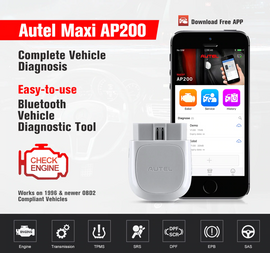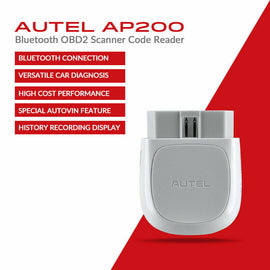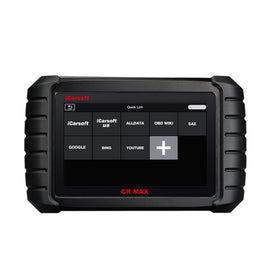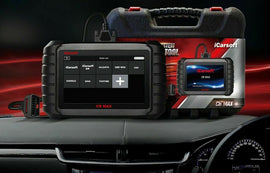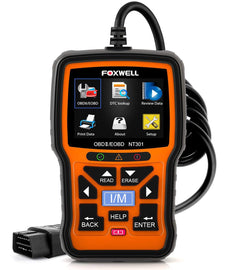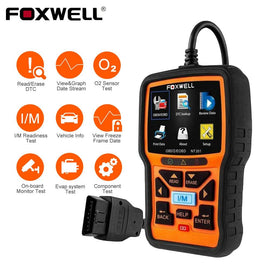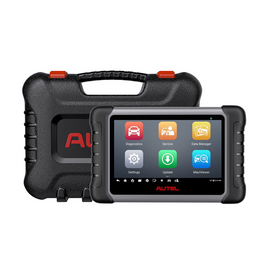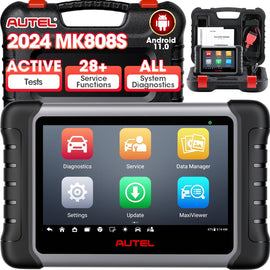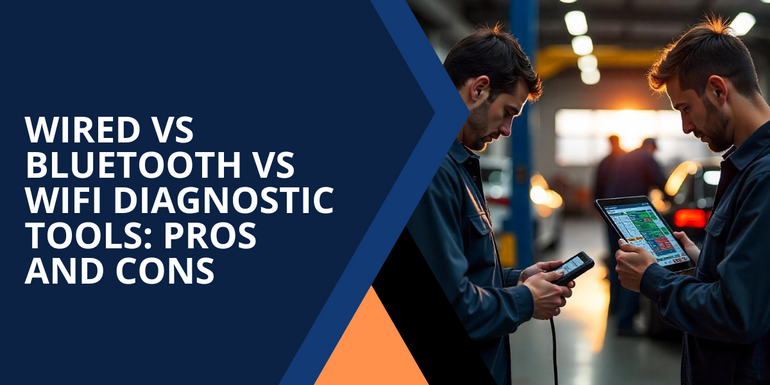When you want a car diagnostic to be the most accurate, you also need the best auto diagnostic scan tool.
It can help in improving car performance, and can make sure you accurately troubleshoot.
However, with so many choices, such as Wi-Fi diagnostic tools, Bluetooth-based devices, and wired devices, you must understand the difference between them.
And that is why we are here.
Why Are Diagnostic Scan Tools Important?
A basic scan tool can handle a wide range of initial tests and is also relatively inexpensive. However, these fundamental tools are exactly that: rudimentary.
They can connect to the OBD II port and get generic codes, as well as some OEM-specific ones, at a fraction of the cost of a professional scan tool, but their features and capabilities are restricted. These techniques are effective as a first step in fixing misfire and catalytic efficiency codes.
It may prompt the technician to visually evaluate the issue or use a scope to examine a waveform. However, testing body control modules or ABS modules falls outside of their functioning range.
More expensive devices will include functionality like the ability to check emission monitor statuses, freeze-frame data, and higher data display rates. Furthermore, more tools are available to reprogram or "reflash" these modules.
Wired Diagnostic Tools: The Traditional Choice
Professional mechanics and car technicians initially favoured wired diagnostic instruments. These tools are physically connected to the vehicle using an OBD-II connection, which gives a direct line to the car's computer.
Pros:
-
Stable and reliable connection: Data transport is dependable and uninterrupted because no wireless signal is involved.
-
Real-time performance: Because wired tools convey data quickly, they are excellent for important system checks and live diagnostics.
-
No batteries or signal problems: They don't need pairing or charging because they get their power directly from the vehicle.
-
Cost-effective: Typically less expensive than wireless alternatives, especially for basic scanning requirements.
Cons:
-
Restricted mobility: Being tied to the car makes it difficult to move about, especially in small workshop areas.
-
Cable management: Wires can be a trip hazard and clutter your workspace.
-
May not have current features: Entry-level wired tools may not support cloud storage, mobile app integration, or wireless upgrades.
Despite these shortcomings, many mechanics continue to choose wired models for their dependability. They are widely recognised as the most dependable car diagnostic scan tool for routine use.
Bluetooth Diagnostic Tools: Compact and Mobile
Bluetooth Diagnostic solutions have become quite common as mobile diagnostics and app-based solutions have grown in popularity. These little devices connect to your car's OBD-II connection and use Bluetooth to wirelessly transfer data to your laptop, tablet, or smartphone.
Pros:
-
Highly lightweight and portable: They are highly lightweight and portable, making them ideal for mobile technicians and roadside checks.
-
App integration: Works with a variety of diagnostic applications, some of which offer personalised dashboards and advanced data analytics.
-
Hands-free experience: The absence of cords allows you to move freely throughout the automobile.
-
Easy to use: Ideal for beginners or do-it-yourselfers looking for quick and easy diagnostics.
Cons:
-
Connectivity problems: Bluetooth connections in congested workshop environments may experience interference or lost signals.
-
Device compatibility: Researching compatibility is critical because not all Bluetooth tools work with all devices or apps.
-
Limited power: Because these tools rely on your device to function, batteries may run out of charge rapidly.
-
Security issues: Some less costly Bluetooth devices may not be securely secured, leaving them vulnerable to unauthorised access.
Nonetheless, many users believe that Bluetooth tools are the ideal auto diagnostic scan tools for occasional usage, especially when portability and ease of use are important considerations.
WiFi Diagnostic Tools: The Smart, Wireless Upgrade
WiFi diagnostic tools strike a mix between the reliability of wired equipment and the portability of Bluetooth devices. These gadgets connect to your device via a WiFi signal rather than Bluetooth, which often results in faster and more consistent connections with longer range.
Pro:
-
Faster data transfer rates: WiFi has quicker communication speeds than Bluetooth, which is critical for advanced diagnostics and live data streaming.
-
Greater compatibility: WiFi products usually work with PC-based systems as well as Android and iOS devices, providing more interoperability.
-
Perfect for business use: Their dependability and performance make them ideal for high-volume workshops.
-
App ecosystem: Advanced desktop and mobile apps with features such as emissions testing, DTC search, and freeze frame data allow a diverse set of WiFi-based instruments.
Cons:
-
Setup is required: Novices may find the initial pairing and network configuration challenging.
-
Signal interference: WiFi networks and neighbouring wireless devices can sometimes interfere with one another.
-
Expensive: WiFi tools are often more expensive than Bluetooth counterparts due to their superior capabilities.
WiFi scan solutions are becoming increasingly popular in areas such as Australia due to their ease of use and interoperability. Moreover, they function with a wide range of car brands and models.
Furthermore, a WiFi tool functions well as an OBD2 diagnostic scan tool, providing long-term data access and remote troubleshooting capabilities for people concerned with real-time monitoring and emissions compliance.
Which One Should You Choose?
Which diagnostic scan tool is ideal for you is determined by your specific demands, environment, and level of technical expertise. This is a brief summary:
|
Tool Type |
Best For |
Key Benefits |
|
Wired Diagnostic Tool |
Professional mechanics |
Reliable, lag-free, and budget-friendly |
|
Bluetooth Diagnostic Tool |
DIY users and mobile techs |
Portable, app-friendly, easy to use |
|
WiFi Diagnostic Tool |
Workshop pros and tech-savvy users |
Fast, stable, versatile, and great for real-time data |
WiFi diagnostic tools are an excellent choice for anyone seeking an automotive diagnostic scan tool that balances speed, performance, and versatility. They are a significant addition to any toolbox because they can handle both simple and sophisticated diagnostics.
Conclusion
Whatever option you select—wired, Bluetooth, or WiFi—having the right diagnostic scan tool for Australian cars will allow you to better understand your vehicle and take preventative measures when problems develop.
Purchasing a competent and compatible diagnostic scan tool is not only prudent but also required as vehicles become more complex.
Do you wish to expand your toolkit?
Browse our selection of superior wired, Bluetooth, and WiFi diagnostic scan tools designed to meet the needs of modern professionals and drivers.

